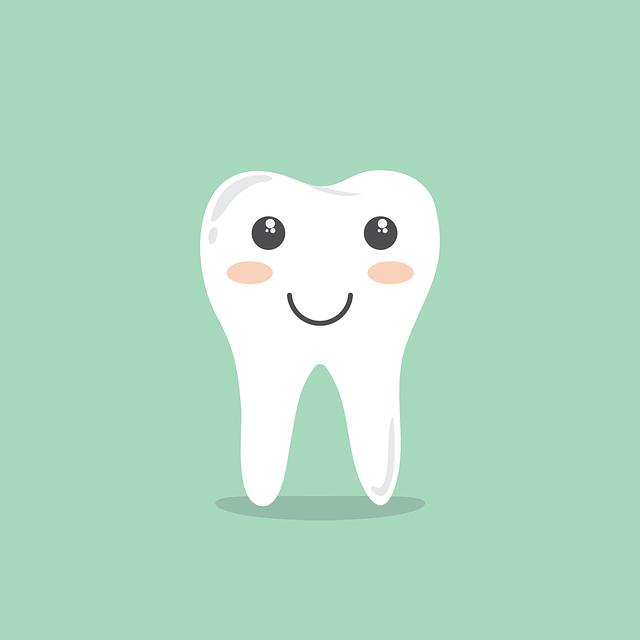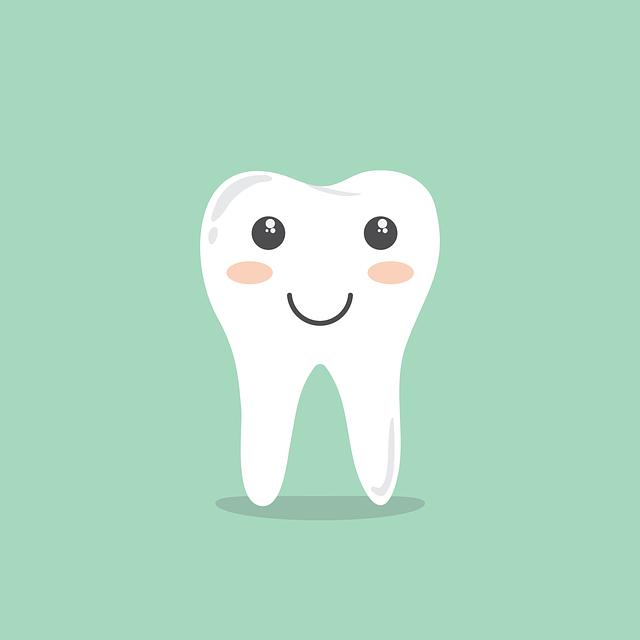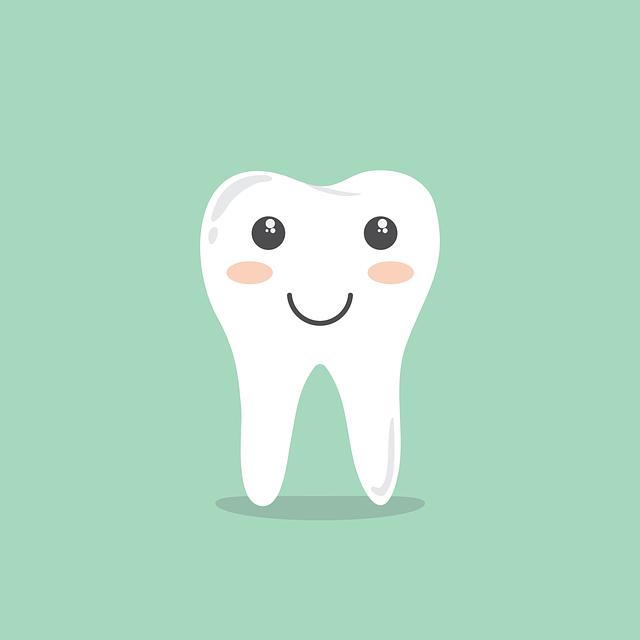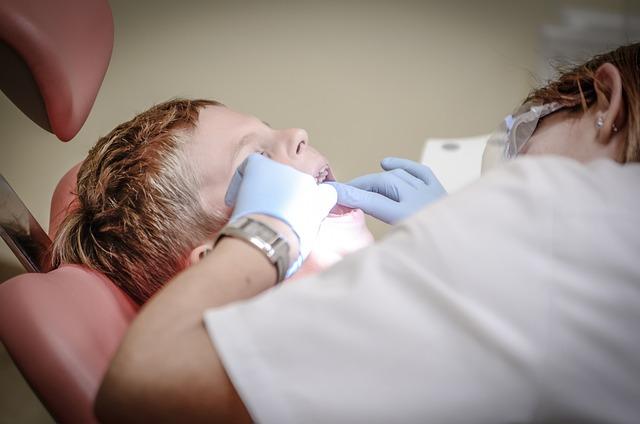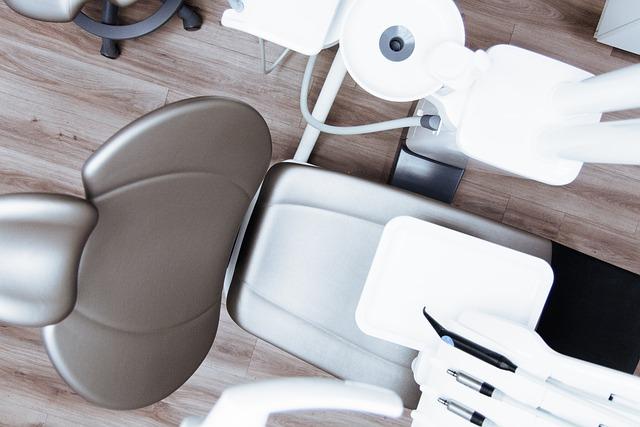Can You Use Salt to Brush Teeth? Dental Hacks Unveiled
Salt is a staple ingredient in every kitchen, but did you know it could potentially become your secret weapon for dental care? Yes, you heard it right! In this article, we will dive into the age-old question: can you use salt to brush teeth? Prepare to have your dental hacks unveiled as we explore the intriguing world of salt and its potential benefits for your pearly whites. Get ready to discover a natural, affordable, and surprisingly effective solution that may just revolutionize your oral hygiene routine. It’s time to put on our confident and knowledgeable hats as we embark on this enlightening journey together. So, grab your toothbrush and join us as we uncover the truth behind using salt for brushing teeth.
1. The Surprising Truth: Can Salt Be Used as an Effective Alternative for Toothpaste?
Using salt as an alternative for toothpaste may come as a surprise to many, but it is a surprisingly effective option. Here are some facts that you should know about using salt as a toothpaste substitute:
- Kills bacteria: Salt has natural antibacterial properties that can help kill the bacteria responsible for causing dental plaque and bad breath.
- Whitens teeth: The abrasive nature of salt can gently scrub away surface stains on teeth, leading to a brighter smile.
- Reduces gum inflammation: Salt can help reduce gum inflammation and promote healing due to its anti-inflammatory properties.
However, it’s important to note that using salt as a toothpaste replacement should be done with caution. Here are a few considerations to keep in mind:
- Don’t overdo it: Salt is abrasive and can potentially damage tooth enamel if used excessively. It’s best to use it sparingly and only as a short-term solution.
- Combine with other ingredients: To enhance the effectiveness of salt as a toothpaste alternative, you can mix it with other natural ingredients like baking soda or coconut oil.
- Consult your dentist: Before making any significant changes to your oral care routine, it’s always a good idea to consult with your dentist to ensure it’s suitable for your specific dental needs.

2. Exploring the Dental Benefits of Salt: A Closer Look at the Science
In recent years, there has been growing interest in the dental benefits of salt, and researchers have delved deeper into the science behind this phenomenon. Salt, specifically saline solution, has been found to possess certain properties that can contribute to improved dental health.
Here are some key findings from scientific studies:
- Antibacterial Properties: Salt has been shown to have natural antibacterial properties, which can help combat harmful bacteria in the mouth. This can be particularly beneficial in preventing and treating gum disease and tooth decay.
- Anti-inflammatory Effects: Salt has demonstrated anti-inflammatory effects, reducing swelling and irritation in the gums. This can aid in the healing process and provide relief from oral discomfort.
- Promotes Saliva Production: Saliva plays a crucial role in maintaining oral health by neutralizing acids, washing away food particles, and remineralizing enamel. Salt has been found to stimulate saliva production, promoting a healthier oral environment.
While the dental benefits of salt are promising, it’s important to note that proper oral hygiene practices, such as regular brushing, flossing, and dental check-ups, remain essential for maintaining optimal dental health. Additionally, it’s advisable to consult with a dental professional before incorporating salt-based remedies into your oral care routine.
3. Should You Swap Your Toothpaste for Salt? Understanding the Pros and Cons
Swapping your toothpaste for salt has been a topic of interest for those seeking natural alternatives to oral care. While it may seem like a simple and cost-effective solution, it’s important to understand the pros and cons before making the switch.
Pros of using salt as toothpaste:
- Natural cleansing properties: Salt has been used for centuries as a natural cleaning agent. It has antimicrobial properties that can help reduce bacteria in the mouth.
- Gentle on gums: Unlike some commercial toothpaste that may contain harsh chemicals, salt is generally gentle on the gums and may help alleviate gum inflammation.
- Budget-friendly: Salt is a readily available and inexpensive ingredient, making it an affordable option for those on a tight budget.
Cons of using salt as toothpaste:
- Incomplete oral care: While salt may have some cleansing properties, it doesn’t contain fluoride, which is essential for preventing tooth decay. Regular toothpaste also contains ingredients that help freshen breath and whiten teeth, which salt may not provide.
- Potential for enamel erosion: Salt is abrasive and can potentially wear down tooth enamel over time. This can lead to increased tooth sensitivity and an increased risk of cavities.
- Taste and texture: Salt may have a strong taste and gritty texture, which can be off-putting for some individuals. This may make it less enjoyable to use and result in inadequate brushing.
4. How to Safely Incorporate Salt into Your Oral Hygiene Routine
Many people are surprised to learn that salt can actually be beneficial for oral health. It has natural antibacterial properties and can help to reduce inflammation in the gums. However, it’s important to use salt in your oral hygiene routine safely and effectively to avoid any potential risks. Here are some tips to incorporate salt into your routine:
- Saltwater rinse: Dissolve half a teaspoon of salt in a glass of warm water. Gargle this solution for 30 seconds and spit it out. This rinse can help to kill bacteria in your mouth and soothe gum inflammation.
- Salt toothpaste: You can create a simple salt toothpaste by mixing salt with a small amount of water to form a paste. Use this paste to brush your teeth gently. Be careful not to scrub too hard, as salt can be abrasive and may damage your enamel over time.
- Saltwater mouthwash: Another way to incorporate salt into your routine is by using a saltwater mouthwash. Mix half a teaspoon of salt in a cup of warm water and swish it around your mouth for 30 seconds before spitting it out. This can help to freshen your breath and promote overall oral health.
Remember, while salt can be beneficial for oral health, it’s important to use it in moderation and consult with your dentist if you have any concerns. Incorporating salt into your oral hygiene routine can be a natural and effective way to maintain a healthy mouth.
5. Debunking Myths: Addressing Common Concerns about Salt as a Toothbrushing Agent
There are several common concerns and myths surrounding the use of salt as a toothbrushing agent. However, it is important to debunk these misconceptions and address them with factual information:
- Myth 1: Salt is too abrasive and can damage tooth enamel.
- Myth 2: Salt can cause gum irritation or sensitivity.
- Myth 3: Salt cannot effectively clean the teeth like toothpaste.
Contrary to this belief, when used in moderation, salt can actually provide gentle abrasion that helps remove plaque and stains from the teeth. It is important to remember that excessive force while brushing, rather than the salt itself, can cause enamel damage.
While some individuals may experience temporary sensitivity or irritation when using salt as a toothbrushing agent, it is usually due to an underlying dental issue or improper technique. When used correctly, salt is generally safe for most individuals and can even help reduce gum inflammation.
While toothpaste is specifically formulated with additional ingredients to promote oral health, salt can still be an effective natural alternative for cleaning the teeth. Its antibacterial properties can help combat harmful bacteria in the mouth, and it can serve as a temporary solution when toothpaste is not available.
By debunking these common concerns, it becomes clear that salt can be a viable option for toothbrushing when used properly and in moderation. However, it is always recommended to consult with a dentist or oral health professional for personalized advice and guidance.
6. The Role of Salt in Promoting Oral Health: Insights from Dental Professionals
When it comes to maintaining optimal oral health, salt has long been recognized as a valuable tool. Dental professionals have shed light on the various ways in which salt can promote oral hygiene and prevent dental issues. Here are some key insights shared by experts in the field:
- Antibacterial properties: Salt possesses natural antibacterial properties, making it effective in reducing the bacteria that can cause tooth decay and gum disease.
- Gum health: Saltwater rinses can help soothe and heal inflamed gums. The salt helps to reduce swelling and eliminate harmful bacteria, promoting healthy gum tissue.
- Oral hygiene maintenance: Salt can be used as an ingredient in homemade toothpaste or mouthwash. Its abrasive nature aids in removing plaque and stains, contributing to a cleaner and brighter smile.
By incorporating salt into our oral care routines, we can harness its beneficial properties and work towards achieving excellent oral health. It is important to note that while salt can be helpful, consulting with a dental professional is always recommended for personalized advice and guidance.
7. Tips and Tricks: Maximizing the Effectiveness of Salt as a Tooth Cleaning Agent
When it comes to dental hygiene, salt can be a powerful ally in keeping your teeth clean and healthy. Here are some tips and tricks to help you maximize the effectiveness of salt as a tooth cleaning agent:
- Use salt as a natural toothpaste: Mix a small amount of salt with water to create a paste-like consistency. Gently brush your teeth with this mixture, focusing on areas with plaque buildup. Salt acts as a mild abrasive, helping to remove stains and bacteria.
- Rinse with saltwater: A saltwater rinse can be a great addition to your oral care routine. Dissolve half a teaspoon of salt in warm water and swish it around your mouth for about 30 seconds. This can help kill bacteria, reduce inflammation, and alleviate gum sensitivity.
- Combine salt with other natural ingredients: For an extra boost, you can combine salt with other natural ingredients like baking soda or lemon juice. These combinations can enhance the cleansing properties of salt and provide additional oral health benefits.
- Maintain a proper salt-to-water ratio: It’s important to strike the right balance when using salt for dental care. Too much salt can cause irritation, while too little may not yield effective results. Experiment with different ratios to find what works best for you.
- Be consistent: Like any dental care routine, consistency is key. Incorporate salt into your oral hygiene practices regularly to maintain its effectiveness over time. Remember to consult with your dentist before making any significant changes to your dental care routine.
By following these tips and tricks, you can harness the power of salt to maximize its effectiveness as a tooth cleaning agent. Enjoy the benefits of a naturally clean and healthy smile!
8. Salt vs. Toothpaste: Weighing the Pros and Cons of Each Oral Care Option
When it comes to oral care, there are various options available, with salt and toothpaste being two popular choices. Let’s take a closer look at the pros and cons of each to help you make an informed decision for your oral hygiene routine.
Salt:
Salt has been used for centuries as a natural remedy for oral health. Here are some advantages and disadvantages to consider:
- Pros:
- Antibacterial properties that can help reduce bacteria in the mouth
- Relatively inexpensive and easily accessible
- May provide temporary relief for minor oral irritations
- Cons:
- Can be abrasive and potentially damage tooth enamel
- Does not contain fluoride, which is essential for strengthening teeth
- May not provide thorough cleaning and plaque removal
Toothpaste:
Toothpaste, on the other hand, is specifically formulated for oral care. Here are some of its pros and cons:
- Pros:
- Contains fluoride, which helps prevent tooth decay and strengthens enamel
- Can effectively remove plaque and food particles
- Comes in various flavors to enhance the brushing experience
- Cons:
- May contain artificial ingredients or additives
- Can be more expensive compared to salt
- Some individuals may have allergies or sensitivities to certain toothpaste ingredients
Ultimately, the choice between salt and toothpaste depends on personal preference and specific oral health needs. It’s worth consulting with a dentist to determine the most suitable option for you. Remember, maintaining regular oral hygiene practices, including brushing twice a day and flossing, is key to achieving optimal oral health.
9. Is Salt a Viable Long-Term Solution for Brushing Teeth? Expert Opinions Explored
When it comes to oral hygiene, there is a wide range of opinions on whether salt is a viable long-term solution for brushing teeth. We have consulted dental experts to explore their opinions on this matter, and here’s what they have to say:
1. Benefits of salt for oral health:
- Salt has antimicrobial properties that can help kill bacteria in the mouth.
- It can aid in reducing inflammation and soothing gum infections.
- Saltwater rinses can provide temporary relief for mouth ulcers and sore gums.
2. Potential drawbacks of using salt:
- Excessive use of salt can lead to an imbalance of oral bacteria, potentially causing other dental issues.
- While salt may have some benefits, it should not replace regular toothpaste and brushing with fluoride.
- Some individuals may find the taste and sensation of saltwater rinses unpleasant.
3. Expert consensus:
While salt can be beneficial for certain oral health conditions, it is not considered a standalone solution for long-term teeth brushing. Dental experts recommend using a fluoride toothpaste and a soft-bristle toothbrush as the primary method for maintaining optimal oral hygiene. Saltwater rinses can be used as a supplementary measure, but they should not replace proper brushing and flossing techniques.
10. Final Verdict: Making an Informed Decision about Salt as a Toothbrushing Tool
After examining the pros and cons of using salt as a toothbrushing tool, it is clear that making an informed decision is crucial for maintaining oral health. Here is the final verdict on whether salt can be an effective addition to your oral care routine:
- Pros:
- Antibacterial properties: Salt possesses natural antibacterial properties that can help fight against harmful bacteria in the mouth.
- Gentle on gums: Unlike some other abrasive toothpaste options, salt is generally gentle on gums and can be a suitable alternative for those with sensitive gums.
- Cheap and readily available: Salt is an inexpensive and easily accessible household item, making it a convenient option for individuals looking for a cost-effective oral care solution.
- Cons:
- Potential enamel erosion: Salt, when used excessively or with excessive force, may contribute to enamel erosion over time. It is important to use salt in moderation and with gentle brushing techniques.
- Not a comprehensive solution: While salt can provide some benefits, it is important to remember that it does not replace regular brushing and flossing with a fluoride toothpaste. It should be viewed as a supplementary tool rather than a standalone solution.
Ultimately, the decision to use salt as a toothbrushing tool should be based on personal preference and in consultation with dental professionals. While it can offer certain advantages, it is crucial to maintain a well-rounded oral care routine that includes regular dental check-ups, proper brushing techniques, and a balanced diet. Incorporating salt into your oral care routine may be worth considering, but it should not replace established practices recommended by dental experts.
Frequently Asked Questions
Q: Can salt be used as a toothpaste substitute?
A: Yes, salt can be used as a toothpaste substitute due to its natural antibacterial properties and ability to remove stains. However, it should not replace regular brushing with toothpaste entirely.
Q: How does using salt help in oral hygiene?
A: Salt can help maintain oral hygiene by reducing bacteria in the mouth and preventing the buildup of plaque. It can also help to neutralize pH levels and promote a healthy environment in the oral cavity.
Q: Is it safe to brush teeth with salt?
A: Brushing teeth with salt is generally safe, but it should be done in moderation. Excessive use of salt can lead to enamel erosion and gum irritation. It is crucial to consult with a dentist before incorporating salt into your oral care routine.
Q: Are there any specific types of salt that are better for brushing teeth?
A: It is recommended to use a fine-grain sea salt or table salt for brushing teeth. These types of salt dissolve easily and are less abrasive compared to coarse salts.
Q: How should salt be used for brushing teeth effectively?
A: To use salt for brushing teeth, dampen your toothbrush and dip it into a small amount of salt. Gently brush your teeth using circular motions for about two minutes. Rinse thoroughly with water afterward.
Q: Can salt whiten teeth?
A: Yes, salt has mild abrasive properties that can help remove surface stains and brighten teeth. However, for significant whitening results, it is advisable to consult a dentist for professional teeth whitening options.
Q: Are there any alternatives to using salt for brushing teeth?
A: Yes, there are several alternatives to using salt for brushing teeth. These include regular toothpaste, baking soda, hydrogen peroxide mouthwash, or natural toothpaste alternatives that contain antibacterial ingredients like tea tree oil.
Q: Should salt brushing replace regular visits to the dentist?
A: No, salt brushing should not replace regular visits to the dentist. While it can contribute to oral hygiene, professional dental check-ups are essential for detecting and addressing any underlying oral health issues.
The Conclusion
In conclusion, the question of whether salt can be used to brush teeth has been unveiled with dental hacks. While the use of salt as a toothpaste alternative may have some benefits, it is crucial to understand its limitations.
Key Takeaways:
1. Salt can act as a temporary remedy for mild oral issues such as bad breath and can aid in reducing inflammation.
2. Salt can also help in removing surface stains and promoting oral hygiene when used in conjunction with regular brushing and flossing.
3. However, it is important to note that salt is not a substitute for regular toothpaste and should not be used as the sole method of oral care.
4. Using salt excessively or in high concentrations can be harmful to tooth enamel and gum tissue, leading to potential long-term damage.
5. It is always recommended to consult with a dentist or dental professional before incorporating salt into your oral care routine.
6. Ultimately, maintaining good oral hygiene practices such as brushing twice a day, flossing, and regular dental check-ups remain the most effective means of achieving optimal oral health.
Remember, while salt may have some benefits as a dental hack, it is essential to exercise caution and prioritize comprehensive oral care for a healthy and beautiful smile.
